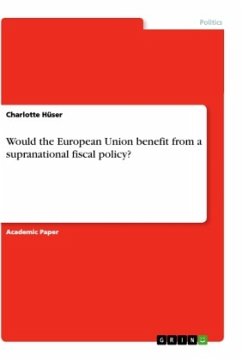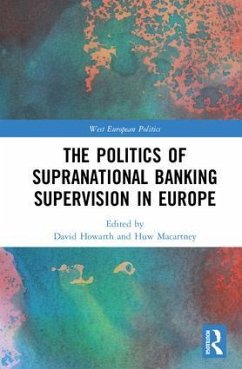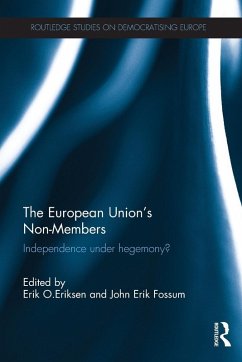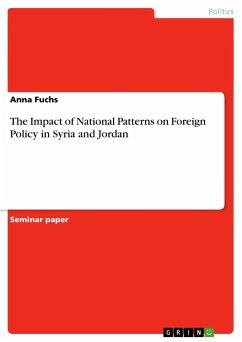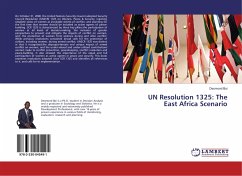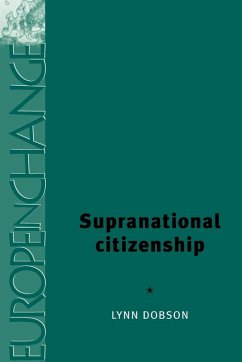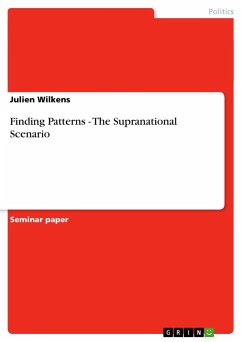
Finding Patterns - The Supranational Scenario
Versandkostenfrei!
Versandfertig in 1-2 Wochen
17,95 €
inkl. MwSt.

PAYBACK Punkte
0 °P sammeln!
Seminar paper from the year 2007 in the subject Politics - International Politics - Topic: European Union, grade: 1,7, University of Mannheim, language: English, abstract: When studying the European Union, one will find references to the "supranational scenario" quite soon. In current literature, there is a trend to think about an integration dimension in the European Union. According to this idea, the Status Quo is located at one end of the integration continua, the supranational actors, that is, the Commission and the European Parliament, at the other one. The Status Quo is assumed to be for...
Seminar paper from the year 2007 in the subject Politics - International Politics - Topic: European Union, grade: 1,7, University of Mannheim, language: English, abstract: When studying the European Union, one will find references to the "supranational scenario" quite soon. In current literature, there is a trend to think about an integration dimension in the European Union. According to this idea, the Status Quo is located at one end of the integration continua, the supranational actors, that is, the Commission and the European Parliament, at the other one. The Status Quo is assumed to be formed under the Luxemburg Compromise and therefore to be at the point of the least integrationist member state. Contrary to this, the Commission and the European Parliament are more pro-integrationist than all member states of the Council of Ministers. One of the most well-know theorists in the analysis on European Union in an institutionalist way is George Tsebelis. My research question will be: Is there empirical evidence that one can easily assume that the European Parliament and the Commission are (a) located closely together in their preferences for concrete policies? Are (b) these positions generally opposite from the Status Quo? And are there (c) some factors which influence the likelihood that EP and EC will be positioned more closely together and at the same time far away from the Status Quo? Does (d) the "supranational scenario" influence the outcome?The quantitative check of Tsebelis' assumption will be made with the Decision-Making in the European Union Dataset. This database includes the position, the salience and the power of all (for the moment) 15 members of the Council, the outcome after the bargaining process, the reference point, and the two relevant actors in my study: the European Parliament and the Commission. To proceed, I will use the statistic program Stata 9.1, and run statistical tests on the data. The goal of this paper is to provide furtherinsights into the positioning of the Parliament and the Commission and to see if the supranational scenario survives a quantitative analysis. As my goal is to find patterns, I will emphasize on an explorative study, without, however, undermining the principles of a social inquiry.



